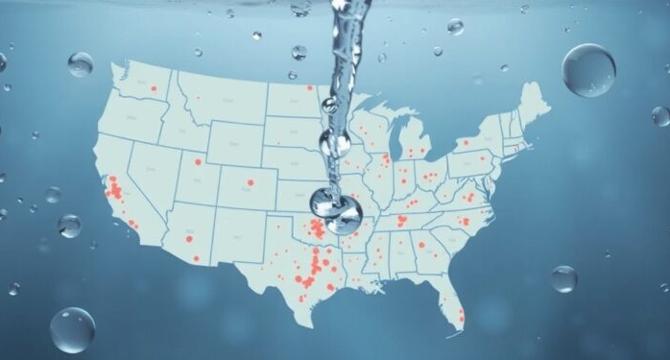Bioengineer
1w
381

Image Credit: Bioengineer
Over 97 Million Americans Face Exposure to Unregulated Contaminants in Drinking Water
- Nearly a third of the U.S. population could be exposed to unregulated contaminants in their drinking water, according to recent research from Silent Spring Institute. Close to 100 contaminants are currently regulated under the U.S. Safe Drinking Water Act. However, many chemicals pass into groundwater and surface water systems without regulation.
- The research focused on evaluating the extent of contaminants found in drinking water supplies. Unregulated contaminants were most pronounced in communities of color, where residents often live in proximity to various pollution sources, exacerbating their risk of adverse health outcomes associated with contaminated water.
- Familiar unregulated contaminants include 1,4-dioxane, PFAS, chlorodifluoromethane, and 1,1-dichloroethane. Each of these substances harbors significant health risks, with 1,4-dioxane being classified as a probable human carcinogen by the EPA.
- The study examined over 4,800 public water systems and determined that around 97 million residents exhibited detectable levels of at least one harmful chemical. Communities with higher proportions of Hispanic and Black residents experienced consistent patterns of exposure to harmful contaminants, regardless of socioeconomic factors.
- The solution to this public health crisis requires collaboration among various stakeholders—government entities, environmental organizations, and community groups—to dismantle systemic barriers and build healthier, safer environments for all.
- Ultimately, there lies a critical need not only for governmental action to protect communities but also for increased public awareness and education regarding the dangers associated with water contaminants that may lurk in their taps.
- The implications of these findings could resonate across the country, catalyzing change and promoting a more health-conscious culture that prioritizes the protection of marginalized communities and their environment.
- By tackling the issues head-on, we can work collectively towards a future where clean, safe drinking water is a guaranteed right for all Americans.
- As the Silent Spring Institute’s findings resound throughout academic circles and social discourse, it becomes increasingly imperative that public health policies reflect an urgent commitment to addressing these disparities.
- Mobilizing resources, implementing proactive measures, and instigating critical conversations are vital for ensuring that our shared water resources remain safe and uncontaminated for generations to come.
Read Full Article
22 Likes
For uninterrupted reading, download the app